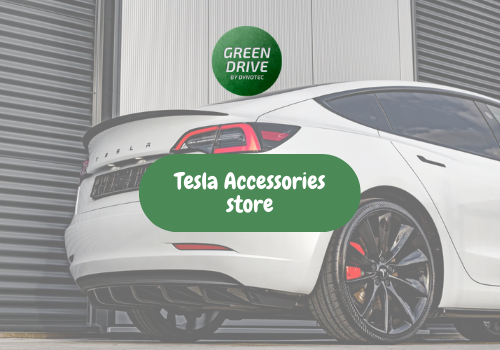To meet the demand for a standardized charging solution for electric cars (EVs) in North America, Tesla has developed the North American Charging Standard (NACS) connector. The region’s EV charging infrastructure was scattered prior to NACS, with various manufacturers and charging station operators using different types of connectors and charging protocols. EV owners encountered difficulties due to this lack of standardization, as they often needed specialized adapters to charge their vehicles at different stations.

By proposing a universal type of connector that can be used with all EV models and charging stations, NACS aims to simplify the charging process. The idea is to offer EV drivers a seamless charging experience so they can use the infrastructure without worrying about adapters or compatibility issues.

Tesla aims to encourage compatibility and interoperability between charging stations, regardless of vehicle brand, by making NACS the industry standard. The connector provides high-power charging capabilities to accommodate faster charging speeds as battery technology advances. Its connection to Tesla’s Supercharger network, one of the world’s largest and most extensive fast-charging networks, enhances convenience for Tesla vehicle owners and encourages the use of Tesla’s charging infrastructure.
Charging companies use NACS
A major shift has occurred in the electric vehicle charging sector with the adoption of the North American Charging Standard (NACS) by charging companies. NACS is becoming more widely accepted for a number of reasons, including Tesla’s alliances with major automakers, the benefits of standardization and the growing need for an effortless charging experience.
Although Tesla announced NACS over six months ago, it was only last month that Ford’s announcement that it would install NACS on its future electric vehicles had a knock-on effect. In the wake of this, GM declared last week that it too intended to include the NACS port in its forthcoming electric vehicles. Although these EV models from GM and Ford won’t be available until 2025, current owners will soon receive an adapter to connect their car to the more than 12,000 Superchargers across Canada and the USA. From 2025 onwards, both automakers are committed to making the NACS connector the standard for future electric vehicles. With an adapter, and until NACS becomes a standard feature on their cars, Ford and GM EV owners now have access to Tesla’s huge network of Superchargers thanks to this strategic alliance.
Blink’s next-generation chargers integrate Tesla’s NACS connector
Blink Charging Co. recently revealed that a new 240 kW DC fast charger would soon be available. This will be the latest fast-charging technology available anywhere in the world. This move illustrates the company’s commitment to providing EV drivers with reliable and efficient charging solutions. Blink Charging is aware of the changing market and the need to promote efficiency and new technologies. At CES
(Consumer Electronics Show) 2023, new silicon carbide technology and additional NACS were introduced as part of Blink’s 240 kW DCFC. The structure of the new charger is currently being finalized. On completion of this final design process, the prototype charger will be submitted for UL certification.
Brendan Jones, President and CEO of Blink Charging, said, “In light of recent announcements from Tesla, GM and Ford, we are witnessing the continued evolution of the EV charging sector, as technologies advance and industry players come together to evaluate best practices. We are delighted by the growing interest in our sector and are ready to support all initiatives aimed at increasing EV adoption.”
Leading charging service providers rally behind NACS connector
Kempower issued a statement announcing its readiness to integrate NACS into all its North American deliveries. “We want to offer smooth, reliable charging to all-electric car drivers in North America. One of our strengths is our ability to respond quickly to customer and market expectations – we’re adding NACS to our portfolio to continue offering the best charging experience to all EV drivers around the world,” the company said.
Following Tesla’s alliances with Ford and GM, several leading charging companies have jumped on the NACS bandwagon. Many companies, including Tritium and ChargePoint, have made public statements outlining their intention to use the NACS connector. The coordinated approach of charging providers underscores the industry’s recognition of NACS as a promising standard for EV charging infrastructure.
Lighting the way to a unified charging future
The possibility of NACS becoming the national standard for EV charging is reinforced by the growing acceptance of the system by charging companies. The desire of many industry players to adopt NACS reflects a shared belief in its benefits, including greater access to Tesla’s massive Supercharger network and greater charging compatibility. The momentum created by these companies is a continuation of the industry’s development and cooperation in EV charging.
Benefits and opportunities for EV drivers
The North American Charging Standard (NACS) is gaining in popularity, encouraging the future of standardized EV charging. The industry is moving towards a uniform, seamless charging experience thanks to Tesla’s alliances with major manufacturers, the dedication of charging companies and growing confidence in NACS as a potential national standard. NACS helps EV owners live more convenient lives while advancing interoperability, financial viability and the expansion of EV charging infrastructure. The dream of an accessible and efficient charging network for all EV drivers is closer to reality as more and more parties support NACS. Together, these activities are paving the way for a future of electric and environmentally-friendly transportation.
Industry observers speculate on the next automakers likely to adopt the NACS connector, given the growing support for NACS among charging companies. Due to their significant presence in the electric vehicle market and the industry’s growing trend towards standardization and collaboration, Rivian and Volkswagen are often seen as potential candidates.










